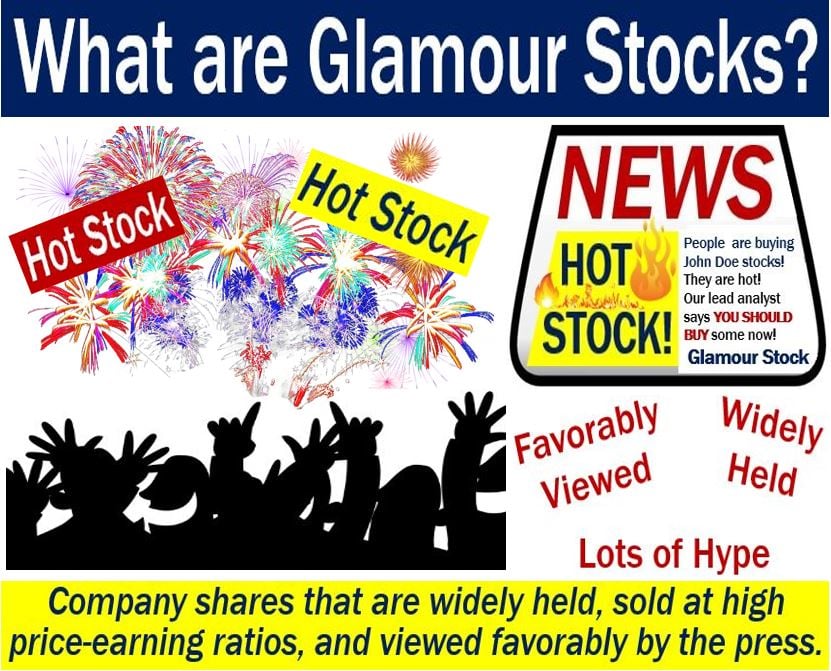Glamour stocks are shares that investors believe will increase in value faster than the rest of the market. Investors also call them ‘hot stocks.’ They rise faster than the rest even in a bull market. The financial press views glamour stocks favorably. Buyers like them because they have very high price-earnings ratios.
Price-Earnings Ratio (P/E ratio) calculates a company’s current share price compared to its earnings per share. It may be an indicator of strong earnings and the growth that awaits it.
Nasdaq’s glossary of terms has the following definition for glamour stocks:
“A popular stock characterized by high earnings growth rate and a price that rise is faster than the market average in a bull market.”
Glamour stocks – widely popular
These types of stocks are popular with both institutional and individual investors. They like them either because of their potential earnings.
Glamour stocks tend to outperform the rest of the market for a while. However, if they lose their glamour and do not meet investors’ expectations, they can fall back dramatically.

Investors tend to over purchase glamour stocks that have performed well. Consequently, their prices shoot up.
Contrarian investors, on the other hand, tend to bet against traditional stock strategies, including glamour stocks. They purchase underpriced value stocks and sell those whose prices are too high.
Contrarian investing refers to behaving like a bull in a market full of bears, and a bear in a market full of bulls. In other words, going against the herd in the marketplace.
Boring vs. glamour stocks
The market has hot stocks and boring stocks. These are the stocks of companies that have a good reputation. There is more to them than just good potential and optimistic forecasts by analysts.
For example, Coca-Cola and McDonald’s stocks are ‘boring.’ The companies have long track records of accomplishments.
The main advantages of boring stocks are their lower risks and high probability of decent returns.
In an article in Seeking Alpha, the author writes:
“It is widely accepted that hot stocks not only are much more risky than boring stocks, but they usually produce worse returns. This phenomenon has several explanations that are linked with each other.”
“First, hot stocks are usually stocks of startups and fast growing companies, so the probability of the success for them is not very high.”
